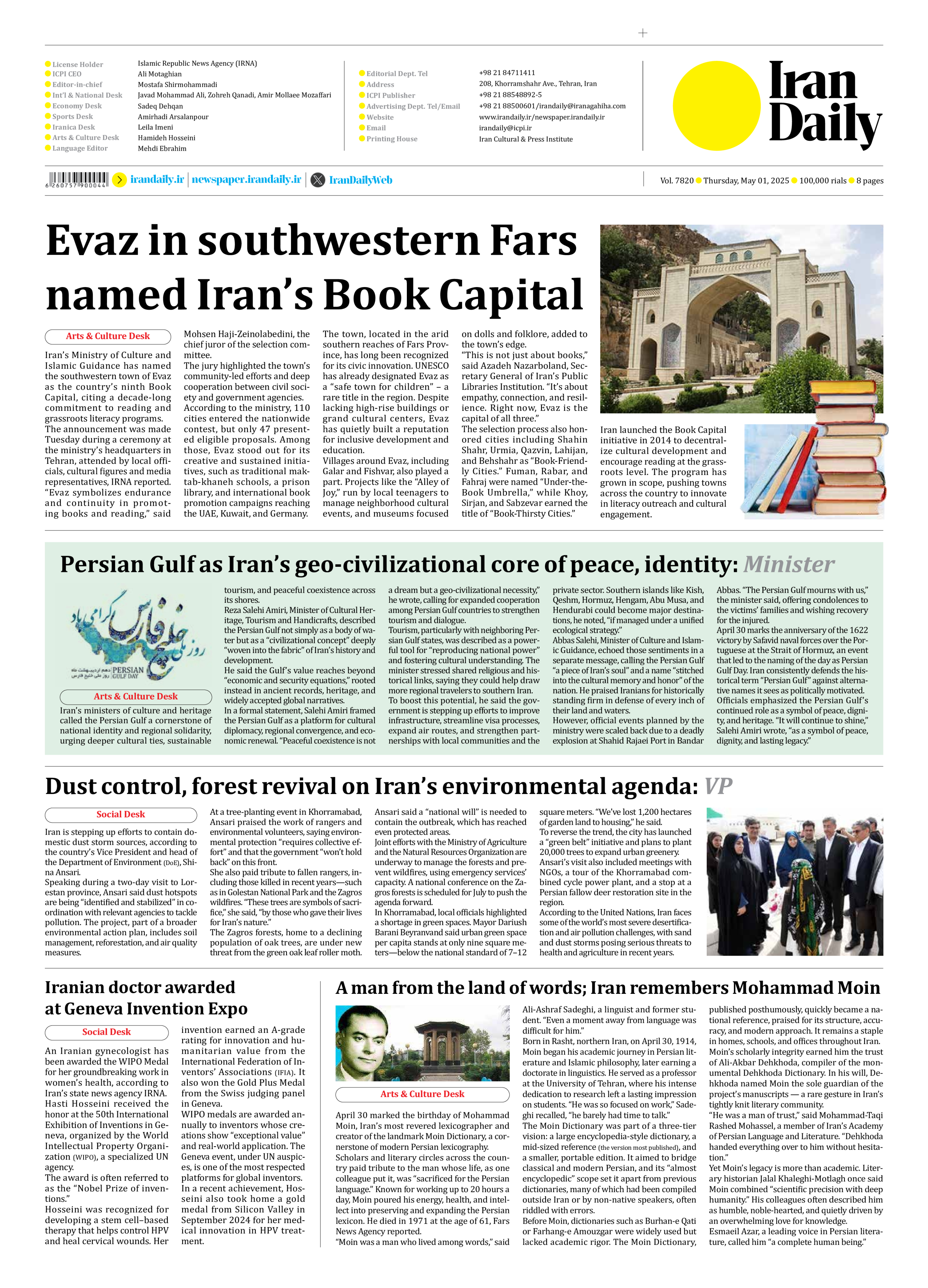
A man from the land of words; Iran remembers Mohammad Moin
April 30 marked the birthday of Mohammad Moin, Iran’s most revered lexicographer and creator of the landmark Moin Dictionary, a cornerstone of modern Persian lexicography.
Scholars and literary circles across the country paid tribute to the man whose life, as one colleague put it, was “sacrificed for the Persian language.” Known for working up to 20 hours a day, Moin poured his energy, health, and intellect into preserving and expanding the Persian lexicon. He died in 1971 at the age of 61, Fars News Agency reported.
“Moin was a man who lived among words,” said Ali-Ashraf Sadeghi, a linguist and former student. “Even a moment away from language was difficult for him.”
Born in Rasht, northern Iran, on April 30, 1914, Moin began his academic journey in Persian literature and Islamic philosophy, later earning a doctorate in linguistics. He served as a professor at the University of Tehran, where his intense dedication to research left a lasting impression on students. “He was so focused on work,” Sadeghi recalled, “he barely had time to talk.”
The Moin Dictionary was part of a three-tier vision: a large encyclopedia-style dictionary, a mid-sized reference (the version most published), and a smaller, portable edition. It aimed to bridge classical and modern Persian, and its “almost encyclopedic” scope set it apart from previous dictionaries, many of which had been compiled outside Iran or by non-native speakers, often riddled with errors.
Before Moin, dictionaries such as Burhan-e Qati or Farhang-e Amouzgar were widely used but lacked academic rigor. The Moin Dictionary, published posthumously, quickly became a national reference, praised for its structure, accuracy, and modern approach. It remains a staple in homes, schools, and offices throughout Iran.
Moin’s scholarly integrity earned him the trust of Ali-Akbar Dehkhoda, compiler of the monumental Dehkhoda Dictionary. In his will, Dehkhoda named Moin the sole guardian of the project’s manuscripts — a rare gesture in Iran’s tightly knit literary community.
“He was a man of trust,” said Mohammad-Taqi Rashed Mohassel, a member of Iran’s Academy of Persian Language and Literature. “Dehkhoda handed everything over to him without hesitation.”
Yet Moin’s legacy is more than academic. Literary historian Jalal Khaleghi-Motlagh once said Moin combined “scientific precision with deep humanity.” His colleagues often described him as humble, noble-hearted, and quietly driven by an overwhelming love for knowledge.
Esmaeil Azar, a leading voice in Persian literature, called him “a complete human being.”







